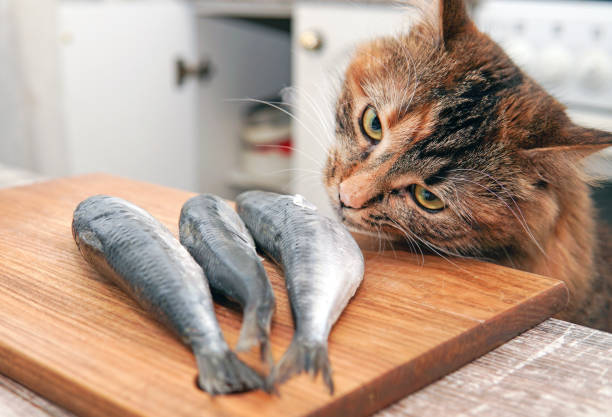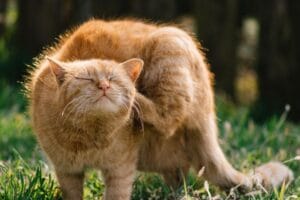Is Tuna Good for Cats with Liver Disease?

Liver disease is a serious health condition that can affect cats, just as it does in humans. The liver plays a crucial role in a cat’s overall health by processing nutrients, eliminating toxins, and regulating various bodily functions. When the liver becomes compromised due to illness or damage, it can lead to significant health issues.
One such question that often arises among cat owners, “Is Tuna good for cats with liver disease?”. In this article, we will delve into this topic, exploring the relationship between tuna consumption and liver disease in cats, and offer insights into the best diet for feline companions facing this condition.
The Importance of Diet for Cats with Liver Disease
Diet plays a crucial role in managing liver disease in cats. Some key dietary considerations for cats with liver disease include:
- Reduced Protein Intake: Cats with liver disease may require a diet with reduced protein levels. While protein is essential for feline health, excessive amounts can strain the liver’s compromised functions.
- High-Quality Protein Sources: When providing protein to a cat with liver disease, it is crucial to ensure that the source is of high quality and easily digestible. This helps reduce the burden on the liver.
- Adequate Calories: Cats with liver disease may have a reduced appetite. Ensuring they receive enough calories is vital to prevent weight loss and provide energy for healing.
- Supplementation with B-Vitamins: B-vitamins are crucial for liver health and can be beneficial when added to the cat’s diet in consultation with a veterinarian.

Is Tuna Good for Cats with Liver Disease?
Tuna is a popular food as cats love it due to its strong aroma and flavor. However, it comes with a few problems. To understand these problems better, let’s think about how cats in the wild get their nutrients.
Cats in the wild get their sustenance by hunting down animals, and eating them whole (the meat, organs, the contents within their guts, etc). This gives them a balance of various needed nutrients. When it comes to fish (e.g. Tuna), it is mostly just fish muscle, consisting mostly of fat and protein. There is a lack of other essential vitamins and nutrients that a cat needs for healthy development. Especially a cat with liver disease.
For these reasons, Tuna is only recommended in moderation or as a treat, by vets. Fresh Tuna should never be a main part of a Cat’s diet. Canned Tuna is a better option, as commercial manufacturers will usually bundle the Tuna with other essential vitamins and nutrients needed (check the product description carefully).
Furthermore, Tuna is known to be a little addictive. This can also cause potential issues, especially if you accidentally get a cat with liver disease hooked onto Tuna.
Nutritious problems associated with Tuna for Cats
Here is a proper list of compiled issues regarding Tuna and Cats with Liver Disease
- High Protein Content: Tuna is relatively high in protein, and feeding it in excess to a cat with liver disease could overburden the liver. Therefore, it may not be the best protein source for these cats, especially in large quantities. Out of all fish varieties, tuna has one of the highest protein concentrations.
- Lack of Taurine: Tuna lacks an essential amino acid called taurine, which is vital for feline health. Prolonged consumption of tuna without adequate taurine intake can lead to serious health issues.
- Mercury Contamination: Tuna, especially certain varieties, can contain significant levels of mercury. Mercury is a toxic heavy metal that can have adverse effects on a cat’s health, particularly on their liver. In cats already battling liver disease, mercury exposure can further compromise their liver function and hinder their recovery.
- High Fat and Calorie Content: Tuna is relatively high in fat, which may not be suitable for cats with liver disease, as excessive fat intake can be hard for the liver to process. Tuna may fill your cat’s stomach, but won’t give them the right nutritional balance. It could also cause overweight problems in your cat.
So, is Tuna good for Cats with Liver Disease? No, not really. There are so many other great options out there, why risk your cat’s health with Tuna? At best, it should be considered an occasional Cat Treat.
Alternatives to Tuna for Cats with Liver Disease
If you’re looking for suitable alternatives to tuna for cats with liver disease, consider the following options:
- Cooked Chicken or Turkey: Lean, cooked chicken or turkey can serve as an excellent alternative to tuna. These meats offer a good source of easily digestible protein, which can be beneficial for cats with liver disease.
- Low-Mercury Fish: If you still want to treat your cat with fish, opt for varieties with lower mercury levels, such as haddock or pollock. These options are safer for cats with liver issues, minimizing the risk of mercury toxicity.
- Prescription Diets: Consult your veterinarian about specialized prescription diets designed specifically for cats with liver disease. These diets are formulated to support the liver’s functions and provide optimal nutrition for cats in need.
- Supplements and Medications: In some cases, cats with liver disease may benefit from specific supplements or medications prescribed by a veterinarian to support their liver function and overall well-being.
You can also try your hand at making homemade food for your cats with liver disease. It’s much easier than you think!
Conclusion
In conclusion, while tuna is a favorite treat for many cats, it may not be the best dietary option for those suffering from liver disease. The high protein and fat content, coupled with the lack of taurine, can potentially exacerbate their condition.
Instead, opt for alternative protein sources and consulting with a veterinarian to design an appropriate diet plan is essential for managing liver disease in cats effectively. Providing proper care and nutrition can significantly contribute to the well-being and recovery of our beloved pets.


